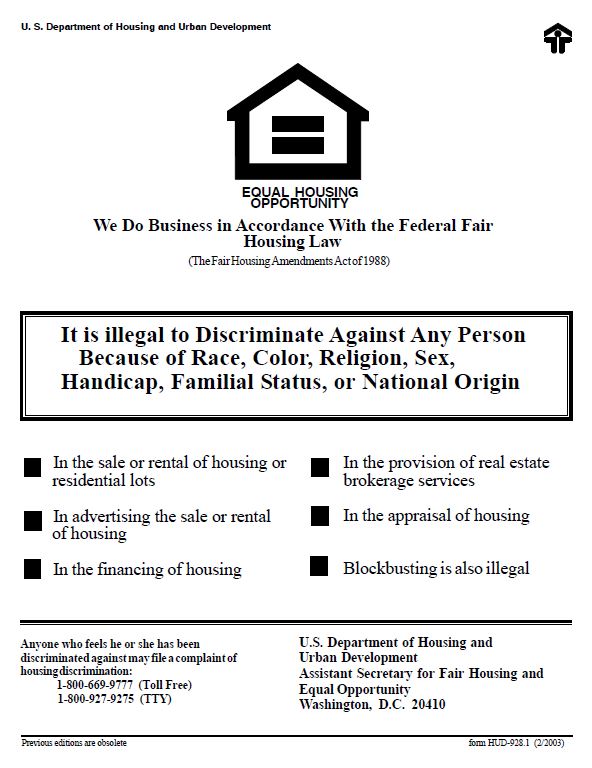Fair Housing Act: What It Means to You
Landlords have a broad latitude when choosing new residents based on their credit scores, criminal history, financial ability to pay, and renting history. However, there are limitations imposed by the US federal government regarding an applicant’s personal characteristics that must not be a factor when making a decision.
This article discusses the Fair Housing Act’s protected classes, describes the provisions of the Fair Housing Act, and shows common situations that gives rise to problems. It is important we follow federal regulations when leasing the properties to prospective tenants.
Real Property Management strictly adheres to all requirements of the Fair Housing Laws that state it is illegal to discriminate against any person in the protected classes.
Title VIII of the Civil Rights Act of 1968 (Fair Housing Act), as amended, prohibits discrimination in the sale, rental, and financing of dwellings, and in other housing-related transactions, based on race, color, national origin, religion, sex, familial status (including children under the age of 18 living with parents or legal custodians, pregnant women, and people securing custody of children under the age of 18), and disability.
Prohibited Actions
Property managements will not discriminate against any applicant for reasons of race, color, creed, national origin, sex, age, marital status, familial status, or physical or mental disability.

Examples of prohibited actions based on renting to protected classes are:
- Refuse to rent housing
- Refuse to negotiate for housing
- Make housing unavailable
- Advertising for a specific group of people
- Set different terms, conditions or privileges for rental
- Deny a visually impaired tenant to keep a guide dog in a dwelling with a “no pets” policy
Fair Housing Poster
If you are a professional, licensed property manager, your failure to display the Fair Housing Poster, as required, is deemed a discriminatory housing practice and prima facie evidence of a violation of the Fair Housing Act.
In other words, not having the poster up is illegal and if someone accuses you of discrimination, lack of the poster could be taken as presumptive evidence that you were guilty of discrimination.
Clearly, any rental-housing provider’s failure to post the mandated Equal Housing Opportunity Poster, or a reasonable facsimile, would put himself or herself in jeopardy of having to defend a Fair Housing Complaint, filed by anyone.
Therefore, this HUD Fair Housing Poster should be placed at a conspicuous place in your rental office for all to see upon entry. Any person who feels they are injured by a housing provider’s violation of the poster requirement could file a complaint of discrimination.

Disabilities
In essence, a landlord may not:
- Refuse to let a disabled person make reasonable modifications to the dwelling or common use areas, at their expense, if necessary for the disabled person to use the housing. (Where reasonable, the landlord may permit changes only if the disabled person agrees to restore the property to its original condition when they move)
- Refuse to make reasonable accommodations in rules, policies, practices or services if necessary for the disabled person to use the housing
Example: An apartment complex that offers tenants ample, unassigned parking must honor a request from a mobility-impaired tenant for a reserved space near her apartment if necessary to assure that she can have access to her apartment.
Real Property Management is the nation’s leading property management business. We comply with the Fair Housing Act and we know how it applies to the property management business.
Contact your local Real Property Management office for expert advice and professional property management services.

